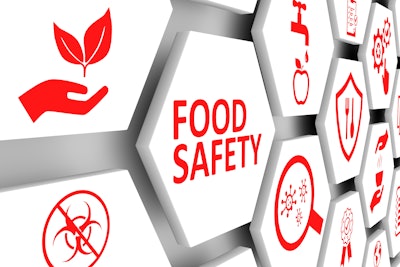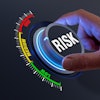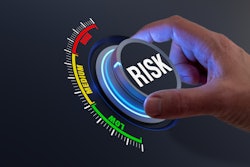
According to the USDA Food Safety and Inspection Service, a total of 65 meat and poultry-related recalls occurred in the United States in 2023, amounting to more than 4 million pounds of food recalled. Among the top reasons for recalls were import violations, extraneous material, and undeclared allergen and pathogen contamination.
As reported by the Center for Disease Control and Prevention (CDC), listeria infections rank as the third leading cause of death from foodborne illnesses in the United States, with individuals over 65, pregnant women and individuals with weakened immune systems at the greatest risk. Efforts to mitigate the risks of foodborne illnesses include the Food Traceability Final Rule, as part of the US FDA’s Food Safety Modernization Act (FSMA), which is set to establish traceability recordkeeping requirements for entities who manufacture, process, pack or hold food listed on the Food Traceability List. The new requirements will help to decrease foodborne illnesses and/or deaths through faster identification and removal of contaminated food, with compliance set to take effect in January 2026.
With already 20 reported recalls and public health alerts in 2024 across the United States, according to the USDA, the adoption of RFID to support track and trace is crucial for food safety and traceability. Food suppliers are increasingly embracing RAIN RFID tagging to optimize supply chain safety and ensure real-time insights into product origins, journey stops and expiration dates. From livestock management to the production, processing and transportation of products to restaurants and supermarkets, RAIN RFID tagging provides full visibility into the health and history of every product.
RAIN RFID-enabled livestock management
Optimizing food supply chain safety and traceability begins with the initial management of livestock. RAIN RFID ear tags provide farmers with full visibility into every aspect of the general health and movement of livestock, offering the ability to be read at up to nine meters away and withstand disruptive weather conditions. Linked directly to an online database which can be monitored in real-time, RAIN RFID tags allow farmers to track and monitor all animal-specific data including vaccination records, inoculations history, and breeding details. In addition, the tagging process provides little to no disruption or stress to livestock, and animals are only required to be fitted once with the tag to immediately begin the track-and-trace process for farmers.
When one or more animals falls sick, this real-time data enables farmers to act quickly to identify and quarantine infected animals, mitigating the risks of infecting others and ultimately ensuring the overall safety of the entire livestock. As meat and poultry-related recalls make up a significant portion of the total recalls experienced in the United States, RAIN RFID ear tags provide a streamlined and simplified approach to animal management. Powered by technology that is both adaptable and tailored to the immediate needs of farmers and varying breeds of livestock, tags ensure that the day-to-day operations for farmers are not disrupted by the case of one or more sick animal.
Food supply chain management
At the next stage of processing before transportation, RAIN RFID tags streamline the crucial process of monitoring poultry and meat. Through corresponding RAIN RFID tags, animal meat and carcasses move throughout processing lines and into appropriate bins for disposal or packaging. As they move along the production line, workers can monitor in real-time the hygiene of processing facilities while tracking essential data including grade of meat, level of impurities, temperature levels and quality control. This information is then stored in a database, enabling the continuous tracking of every package of meat and poultry, including from which farm, and more precisely, which animal, it came from. In the instance of a compromised product, this means that workers can easily identify the exact source and take the right steps to ensuring food chain safety. With direct insight into the health and history of every product stored directly into online databases for 24/7 monitoring, RAIN RFID tags provide an unmatched level of inventory visibility. This enables an efficient identification and response tactic to reduce food waste across warehouses, supermarkets and restaurants.
Recall response
RAIN RFID tagging provides the opportunity to more quickly and accurately identify products that pose a threat to consumption safety. With corresponding data stored in online databases, products can be immediately traced back to restaurants or supermarkets in the event of a recall. As most recalls occur by batch or lot numbers, this means companies can more easily trace the direct source of contaminated products. In the instance of tracing foodborne illnesses, products can be traced back to the tagged food bins in processing facilities and even further back to the exact farm and animal from which they arrived.
As the rate of product recalls in the United States shows no signs of declining in 2024, it is crucial for food suppliers to implement new strategies designed to monitor and manage every aspect of the food supply chain. Thankfully, technology can help maintain food supply chain integrity by offering end to end visibility into the managing, handling, transportation and distribution processes. RAIN RFID tags provide an adaptable, cost-effective solution to both monitoring everyday operations while at the same time enabling effective identification and response strategies in the case of a local or national product recall.




















